It’s best to start When Anti Aging Skin Care in your late 20s to early 30s. Proper care can help prevent signs of aging.
As we age, our skin undergoes changes that can lead to wrinkles, fine lines, and loss of elasticity. To combat these effects, it’s important to establish a skincare routine early on. Typically, it’s recommended to start using anti-aging products in your late 20s to early 30s to prevent and minimize the visible signs of aging.
This can include incorporating retinol, vitamin C serums, and moisturizers with SPF into your daily regimen. By taking a proactive approach to skincare, you can help maintain a youthful appearance and prevent premature aging. Consulting with a dermatologist can also provide personalized recommendations for your specific skin concerns.
Importance Of Anti-aging Skin Care
Aging is inevitable, but the visible signs of aging are not. It is never too early to start taking care of your skin to prevent premature aging. Anti-aging skin care helps to maintain a youthful and radiant complexion, as well as to combat the effects of environmental factors and lifestyle choices that accelerate the aging process. By understanding the importance of anti-aging skin care and recognizing the benefits of starting early and the signs to look out for, you can protect your skin and prolong its youthful appearance.
Benefits Of Starting Early
Commencing an anti-aging skin care routine at a young age offers numerous advantages. Early prevention helps to maintain skin elasticity, prevent fine lines and wrinkles, and protect against sun damage. Establishing a consistent skin care regimen allows the skin to retain moisture and produce collagen more effectively, leading to a softer, smoother complexion in the long term.
Signs To Look Out For
As we age, our skin undergoes changes in texture, the appearance of fine lines and wrinkles, and loss of firmness. It is essential to be vigilant and take note of these early signs of aging in order to implement an anti-aging skin care routine that can address these concerns before they become more pronounced.
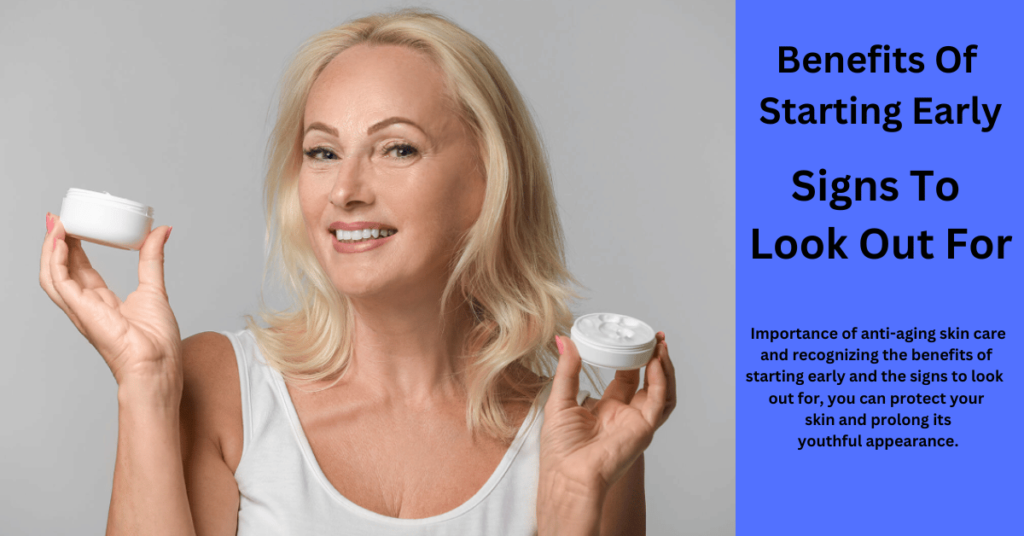
Recommended Anti-aging Products
Retinol-based Products
Retinol is a powerful ingredient known for its anti-aging benefits. It helps to reduce the appearance of fine lines, wrinkles, and sun damage. When choosing a retinol-based product, look for a concentration of at least 0.1% for effective results. Some popular retinol-based products include:
- Olay Regenerist Micro-Sculpting Cream
- RoC Retinol Correxion Deep Wrinkle Night Cream
- SkinCeuticals Retinol 1.0
Vitamin C Serums
Vitamin C is a potent antioxidant that helps to brighten the skin, reduce hyperpigmentation, and protect against environmental damage. Look for vitamin C serums with a concentration of 10-20% for maximum benefits. Some popular vitamin C serums include:
- SkinCeuticals C E Ferulic
- CeraVe Skin Renewing Night Cream
Moisturizers With Hyaluronic Acid
Hyaluronic acid is known for its ability to hydrate and plump the skin, reducing the appearance of fine lines and wrinkles. When choosing a moisturizer with hyaluronic acid, opt for a lightweight, non-comedogenic formula for best results. Some recommended moisturizers with hyaluronic acid are:
- CeraVe Resurfacing Retinol Face Serum
- Estée Lauder Advanced Night Repair Synchronized Recovery Complex II
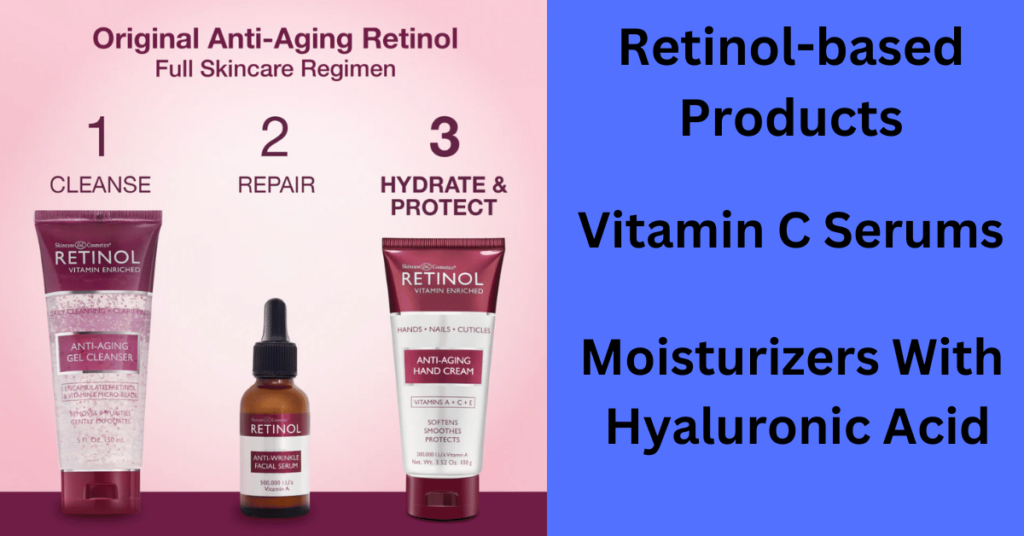
Age-appropriate Skincare Routine
In Your 20s
As you step into your 20s, preventative care is key. Focus on hydrating, sun protection, and gentle cleansing. Incorporate vitamin C and antioxidants for skin brightening and protecting.
In Your 30s
Starting an anti-aging routine in your 30s is crucial. Introduce retinol for reducing fine lines and boosting collagen. Moisturizing, using SPF, and eye cream become essential.
In Your 40s And Beyond
In your 40s, focus on intensive hydration, firming, and targeted treatments. Invest in products that address specific concerns like sagging skin and deep wrinkles.
Consulting Skincare Professionals
When it comes to anti-aging skincare, consulting skincare professionals is of utmost importance. Dermatologists and estheticians hold valuable expertise and can offer personalized advice and recommendations for an effective anti-aging skincare routine.
Dermatologists’ Advice
Dermatologists are medical experts specializing in the diagnosis and treatment of skin conditions. Their advice on anti-aging skincare is based on scientific research and clinical knowledge. They can assess your skin type, concerns, and potential risk factors, providing personalized recommendations to address your specific needs.
- Dermatologists recommend starting anti-aging skincare in your mid-20s to early 30s, as this is when collagen production starts to decline.
- They emphasize the importance of using a broad-spectrum sunscreen with a minimum Sun Protection Factor (SPF) of 30 to protect the skin from harmful UV rays.
- Regular use of retinoids is advised by dermatologists as they can effectively target multiple signs of aging and improve skin texture and elasticity.
- They may also suggest incorporating antioxidants, such as vitamin C and E, into your skincare routine to neutralize free radicals and minimize oxidative stress on the skin.
Estheticians’ Recommendations
Estheticians are skincare professionals who specialize in providing services such as facials, chemical peels, and other non-medical skincare treatments. They can assess your skin condition and offer recommendations for products and treatments to address your skincare concerns.
- Estheticians often recommend starting anti-aging skincare in your late 20s or early 30s, but can provide personalized recommendations based on your skin’s specific needs.
- They may suggest incorporating exfoliants like alpha-hydroxy acids (AHAs) or beta-hydroxy acids (BHAs) to remove dead skin cells and promote cell turnover.
- Regular facial treatments, such as microdermabrasion or chemical peels, performed by estheticians can help improve skin texture and reduce the appearance of fine lines and wrinkles.
- Estheticians may also recommend specific skincare products containing hydrating ingredients like hyaluronic acid or peptides to boost skin moisture and firmness.
In conclusion, consulting skincare professionals, such as dermatologists and estheticians, is essential when considering when to start anti-aging skincare. They can provide expert advice and recommendations tailored to your specific needs, ensuring you establish an effective skincare routine to combat signs of aging and maintain youthful-looking skin.
Natural Anti-aging Remedies
Start using natural anti-aging remedies for your skin care routine at an early age to prevent signs of aging. These remedies can help nourish and protect your skin, promoting a youthful and glowing complexion.
Diy Face Masks
One of the best natural anti-aging remedies you can try is making your own DIY face masks. These masks are packed with ingredients that are beneficial for your skin and can help reduce the signs of aging. Plus, they are easy to make with ingredients you probably already have in your kitchen.
Here are a few DIY face mask recipes you can try:
- Avocado and Honey Mask: Mash half an avocado and mix it with two tablespoons of honey. Apply the mixture to your face and leave it on for 15-20 minutes before rinsing off with warm water.
- Oatmeal and Yogurt Mask: Mix two tablespoons of oatmeal with two tablespoons of yogurt. Apply the mixture to your face and let it sit for 15 minutes. Rinse off with lukewarm water.
- Banana and Coconut Oil Mask: Mash half a ripe banana and mix it with one tablespoon of coconut oil. Apply the mixture to your face and leave it on for 15-20 minutes before rinsing off.
Essential Oil Blends
Another great natural anti-aging remedy is using essential oil blends. Essential oils are known for their numerous skincare benefits and can help improve the appearance of fine lines, wrinkles, and age spots.
Here are a few essential oil blends you can try:
| Blend | Ingredients |
|---|---|
| Lavender and Frankincense | 3 drops of lavender essential oil 3 drops of frankincense essential oil 1 tablespoon of carrier oil |
| Geranium and Rosehip | 3 drops of geranium essential oil 3 drops of rosehip essential oil 1 tablespoon of carrier oil |
| Ylang Ylang and Patchouli | 3 drops of ylang ylang essential oil 3 drops of patchouli essential oil 1 tablespoon of carrier oil |
To use these blends, simply mix the essential oils with a carrier oil, such as jojoba oil or sweet almond oil, and apply a few drops to your face before bedtime. Remember to do a patch test before using any essential oils to make sure you don’t have any allergic reactions.
Understanding Fda Approved Products
Understand the right time to start using anti-aging skin care products for maximum effectiveness. Discover the best age to begin a regular skincare routine and find out what age is appropriate to introduce anti-aging products into your regimen.
Safe Ingredients
- Look for ingredients like retinol and hyaluronic acid.
- Avoid harsh chemicals such as parabens and sulfates.
- Ensure the product does not contain allergens like fragrances.
Effective Formulations
- Choose products with clinically proven results.
- Opt for formulations that target specific skin concerns.
- Ensure the product is dermatologist-tested for efficacy.
When considering anti-aging skincare, understanding FDA approved products is crucial. Safe ingredients like retinol and hyaluronic acid can provide effective results. Avoiding harsh chemicals and allergens is key to maintaining healthy skin. Opting for formulations with proven results and specific targets ensures the product’s efficacy.
Factors Influencing The Age To Start Anti-aging Skincare
There are several factors to consider when determining the right age to start an anti-aging skincare regimen. Genetics, sun exposure, and lifestyle habits all play a pivotal role in influencing when one should begin using anti-aging products. Understanding how these factors contribute to the aging process can help individuals make informed decisions about skincare routines that can benefit them in the long run.
Genetics
Our genetic makeup plays a significant role in determining when signs of aging start to manifest on the skin. Factors such as collagen production, elasticity, and natural skin resilience are inherited traits that can impact the onset of wrinkles, fine lines, and sagging skin. While some individuals may inherit resilient and youthful skin, others may experience visible signs of aging at an earlier age due to genetic predispositions.
Sun Exposure
Prolonged and unprotected exposure to the sun’s harmful UV rays can accelerate the aging process of the skin. Over time, UV radiation can lead to the breakdown of collagen and elastin, causing premature wrinkling, sunspots, and dullness. Individuals with high sun exposure, especially without proper sun protection, may experience visible signs of aging at a younger age compared to those who diligently shield their skin from UV rays.
Lifestyle Habits
One’s lifestyle choices, such as smoking, poor nutrition, inadequate sleep, and high stress levels, can also impact the aging of the skin. Smoking, for instance, accelerates skin aging by causing collagen depletion and impairing blood circulation, leading to a dull and aged appearance. Similarly, inadequate sleep and stressful lifestyles can contribute to the accelerated formation of wrinkles and fine lines. Maintaining a healthy lifestyle can significantly delay the onset of visible signs of aging.
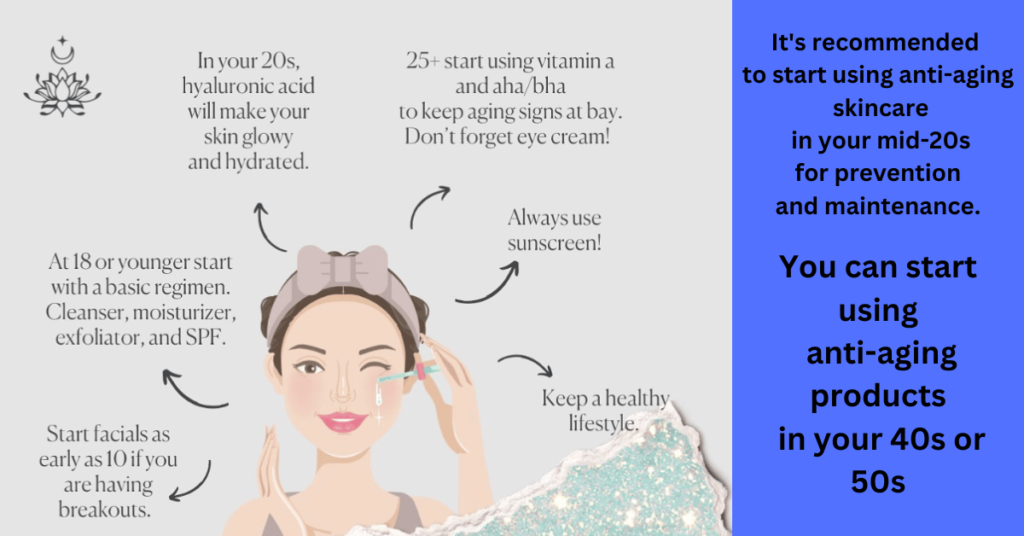
Benefits Of Spf In Anti-aging Regimens
When it comes to anti-aging skincare, one of the most crucial elements to consider is the use of SPF. Incorporating SPF into your daily skincare routine can have a significant impact on preventing premature aging and maintaining youthful, healthy skin. Let’s take a closer look at the benefits of SPF in anti-aging regimens.
Importance Of Daily Sun Protection
Daily sun protection is vital for maintaining youthful skin. Regular use of SPF helps shield your skin from the harmful effects of UVA and UVB rays, which are known to cause premature aging, such as fine lines, wrinkles, and age spots. By incorporating SPF into your daily routine, you can significantly reduce the risk of sun damage, ultimately preserving your skin’s youthful appearance.
Role In Preventing Premature Aging
SPF plays a crucial role in preventing premature aging, serving as a protective barrier against the damaging effects of sun exposure. UV rays can break down collagen and elastin, leading to sagging, dullness, and uneven skin tone. By consistently using SPF, you can minimize the risk of these aging signs, maintaining a smooth, firm, and radiant complexion.
Incorporating Anti-aging Skincare Into Daily Routine
Start your day with a gentle cleanser to remove impurities. Follow with a serum containing antioxidants to protect against environmental damage. Finally, apply a moisturizer with SPF to shield from harmful UV rays.
Begin your evening routine by cleansing your face thoroughly to remove makeup and dirt. Next, apply a retinol cream to combat signs of aging. Finish with a night cream to hydrate and nourish your skin as you sleep.
Myths And Facts About Anti-aging Skincare
When it comes to anti-aging skincare, there are many myths and misconceptions that can confuse even the most savvy beauty enthusiasts. It’s important to separate fact from fiction to ensure that you are making informed decisions about your skincare routine. In this section, we will debunk common misconceptions and provide you with evidence-based facts about anti-aging skincare.
Common Misconceptions
- Using anti-aging skincare products is only necessary when you start seeing signs of aging.
- Sunscreen is only necessary when you spend long hours in direct sunlight.
- It’s better to save money by using generic skincare products instead of investing in specialized anti-aging products.
Let’s debunk these misconceptions and set the record straight once and for all.
Debunked Facts
- Using anti-aging skincare products is only necessary when you start seeing signs of aging. The truth is, prevention is always better than correction. It’s never too early to start taking care of your skin and preventing the signs of aging. By incorporating anti-aging products into your skincare routine from an early age, you can delay the onset of wrinkles, fine lines, and other signs of aging.
- Sunscreen is only necessary when you spend long hours in direct sunlight. Sunscreen should be an essential part of your daily skincare routine, regardless of how much time you spend in the sun. UV rays can penetrate through clouds and windows, causing premature aging and skin damage. By applying sunscreen every day, you can protect your skin from harmful UV rays and prevent the formation of wrinkles, dark spots, and other signs of sun damage.
- It’s better to save money by using generic skincare products instead of investing in specialized anti-aging products. While generic skincare products may seem more cost-effective, they often lack the potent ingredients that are necessary for effective anti-aging. Specialized anti-aging products are formulated with ingredients like retinol, hyaluronic acid, and peptides, which have been scientifically proven to reduce the signs of aging. Investing in high-quality, targeted anti-aging products is an investment in the long-term health and appearance of your skin.
Now that you have a better understanding of the myths and facts surrounding anti-aging skincare, you can make more informed decisions about your skincare routine. Remember, it’s never too early to start taking care of your skin and preventing the signs of aging. Incorporate anti-aging products and practices into your skincare routine, and enjoy youthful, radiant skin for years to come.
Scientifically Proven Ingredients In Anti-aging Products
When it comes to anti-aging skincare, there are numerous options available in the market. However, not all products are created equal. To effectively combat the signs of aging, it’s essential to look for products that contain scientifically proven ingredients. These ingredients have been extensively researched and proven to deliver visible results in reducing wrinkles, boosting skin elasticity, and improving overall skin health.
Retinoids
Retinoids, such as retinol and retinoic acid, are a powerhouse ingredient in anti-aging products. These vitamin A derivatives are backed by decades of scientific research and have shown tremendous efficacy in reducing fine lines, wrinkles, and age spots. Retinoids work by increasing the production of collagen, a key protein responsible for maintaining skin’s elasticity and firmness. Additionally, they accelerate cell turnover, resulting in smoother and more youthful-looking skin.
Peptides
Peptides are short chains of amino acids that play a vital role in the structure and function of the skin. When applied topically, peptides can stimulate collagen synthesis, enhance skin hydration, and minimize the appearance of wrinkles. Peptides work by sending signals to the skin cells, encouraging them to produce more collagen and elastin, two proteins crucial for maintaining skin elasticity. The use of peptides in anti-aging products has gained popularity due to their ability to provide visible results without causing irritation or sensitivity.
Hyaluronic Acid
Hyaluronic Acid is a naturally occurring substance in our skin that holds water and provides hydration and plumpness. With age, the production of hyaluronic acid decreases, leading to dryness, fine lines, and wrinkles. Including hyaluronic acid in your skincare routine can replenish moisture levels, improve skin hydration, and enhance the skin’s natural plumpness. This powerhouse ingredient also has a soothing effect on the skin, making it suitable for all skin types, including sensitive skin.
When it comes to anti-aging skincare, it’s crucial to choose products that contain scientifically proven ingredients. Retinoids, peptides, and hyaluronic acid have all been extensively studied and proven to deliver visible results in reducing signs of aging. Incorporating these ingredients into your skincare routine can help you achieve a more youthful and radiant complexion.
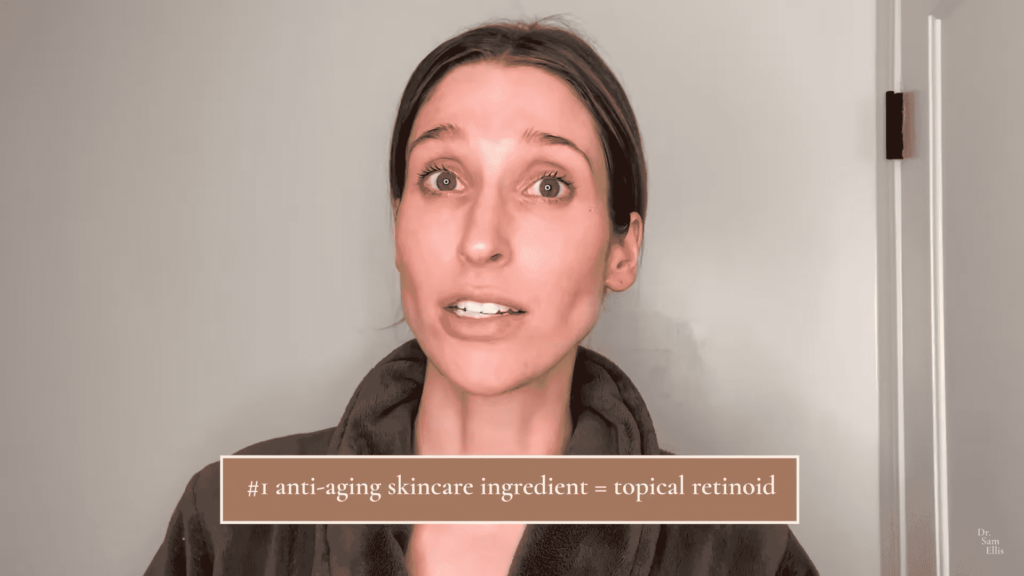
Innovations In The Anti-aging Skincare Industry
Kickstart your anti-aging skincare routine at an early age to boost skin resilience and maintain youthful radiance. Seeking anti-aging solutions before signs appear can proactively combat premature aging effects. Early adoption of effective skincare practices can significantly benefit skin health in the long run.
Nanotechnology In Skincare
Recent advancements in the anti-aging skincare industry have seen the integration of nanotechnology into various products.
Plant-based Alternatives
Another notable trend in anti-aging skincare is the rising popularity of plant-based alternatives that provide effective results.
These innovative approaches showcase the industry’s commitment to delivering cutting-edge solutions for maintaining youthful and healthy skin.
The Role Of Diet And Hydration In Anti-aging
The Role of Diet and Hydration in Anti-Aging
When it comes to anti-aging skincare, diet and hydration play a crucial role in maintaining youthful and healthy skin. Incorporating the right foods and maintaining proper hydration levels can significantly impact the aging process, helping to keep the skin supple, radiant, and free from wrinkles. Let’s delve into the significance of diet and hydration in the fight against aging.
Importance Of Water Intake
Hydration is vital for maintaining youthful and supple skin. Drinking plenty of water flushes out toxins, promotes cell regeneration, and helps maintain the skin’s elasticity, reducing the appearance of fine lines and wrinkles. It is recommended to consume at least 8-10 glasses of water daily to keep the skin adequately hydrated.
Superfoods For Skin Health
Including superfoods in your diet can provide essential nutrients and antioxidants that support skin health and combat aging. Foods such as berries, fatty fish, avocados, and nuts are rich in omega-3 fatty acids, vitamins, and minerals that nourish the skin from within, promoting a youthful and radiant complexion. These superfoods help protect the skin from oxidative stress and maintain its firmness and elasticity.
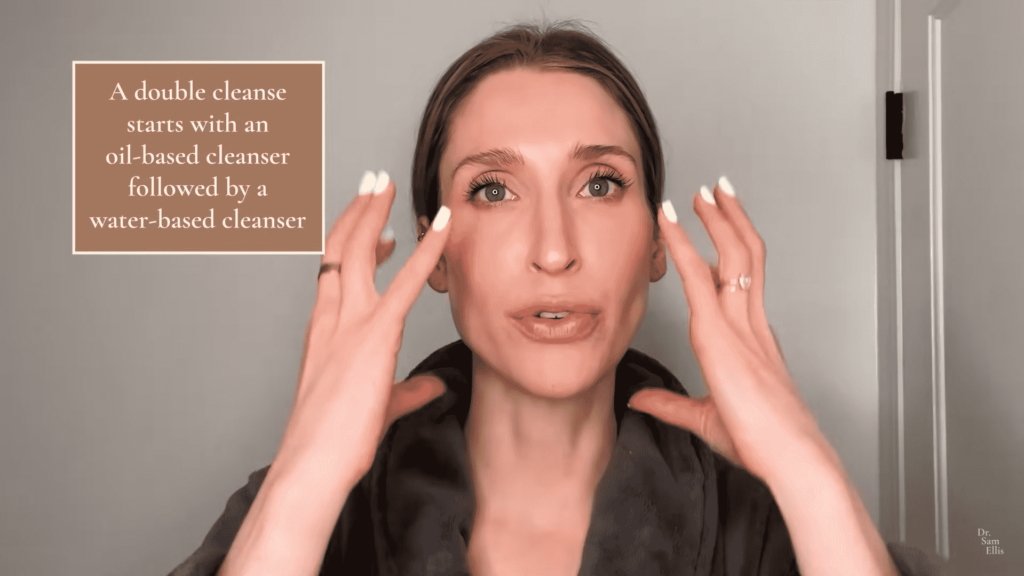
Special Anti-aging Treatments And Procedures
Special anti-aging treatments and procedures can significantly improve the appearance and vitality of the skin. These procedures target specific concerns and often provide more immediate results compared to regular skincare routines.
Microdermabrasion
Microdermabrasion is a non-invasive, exfoliating treatment that removes the top layer of dead skin cells, revealing a smoother, more radiant complexion. This procedure stimulates collagen production and enhances the skin’s elasticity.
Chemical Peels
Chemical peels involve the application of a chemical solution to the skin, causing the top layers to peel off, leading to improved texture and appearance. This treatment helps reduce the appearance of fine lines, wrinkles, and dark spots, promoting a more youthful-looking complexion.
Botox And Fillers
Botox and fillers are injectable treatments designed to reduce the appearance of wrinkles and fine lines. Botox works by temporarily paralyzing the muscles that cause wrinkles, while fillers add volume to areas that have lost firmness and elasticity.
Ethical And Sustainable Anti-aging Brands
The beauty industry is evolving, and consumers are increasingly seeking ethical and sustainable options when it comes to anti-aging skincare. Supporting brands that prioritize cruelty-free practices and eco-friendly initiatives not only benefits your skin but also the environment.
Cruelty-free Products
- Choose anti-aging skincare products from brands that are cruelty-free to ensure no harm is caused to animals during the production process.
- Look for certifications or labels indicating that the products have not been tested on animals.
- Supporting cruelty-free brands promotes a more ethical approach to beauty and skincare.
Eco-friendly Packaging
- Opt for anti-aging products that come in eco-friendly packaging to reduce plastic waste and environmental impact.
- Choose brands that use sustainable materials or recyclable packaging for their skincare items.
- By selecting products with eco-friendly packaging, you contribute to a greener planet and support sustainable practices.
Frequently Asked Questions For When To Start Anti Aging Skin Care
What Age Should You Start Using Anti-aging Skincare?
It’s recommended to start using anti-aging skincare in your mid-20s for prevention and maintenance.
Can I Use Anti-aging Products At 20?
Yes, you can use anti-aging products at 20 to prevent premature aging and maintain healthy skin.
What Is The Right Age To Start Skincare?
Begin a skincare routine in your teens to establish good habits and protect your skin for the future.
Can I Use Anti-aging Products At 30?
Yes, you can start using anti-aging products at 30.
At What Age Should I Start Using Anti-aging Skincare Products?
It is recommended to start using anti-aging skincare products in your late 20s or early 30s to prevent premature signs of aging.
Why Is It Important To Start A Regular Skincare Routine At A Younger Age?
Starting a regular skincare routine at a younger age helps to maintain the health and appearance of your skin, preventing damage from environmental factors and delaying the onset of aging signs.
Can I Start Using Anti-aging Products In My 40s Or 50s?
Yes, you can start using anti-aging products in your 40s or 50s, but it’s better to start earlier as prevention is easier than reversing already existing signs of aging.
What Are The Key Ingredients To Look For In Anti-aging Skincare Products?
Effective anti-aging skincare products often contain ingredients like retinol, hyaluronic acid, peptides, and antioxidants to target different signs of aging and promote skin health.
Conclusion
Begin your anti-aging skincare routine at the right age for optimal results and skin health. Finding the balance between prevention and treatment is key. Consult with a skincare professional to personalize your routine. Remember, consistency is key in achieving youthful and glowing skin.
Start today for a radiant tomorrow.

